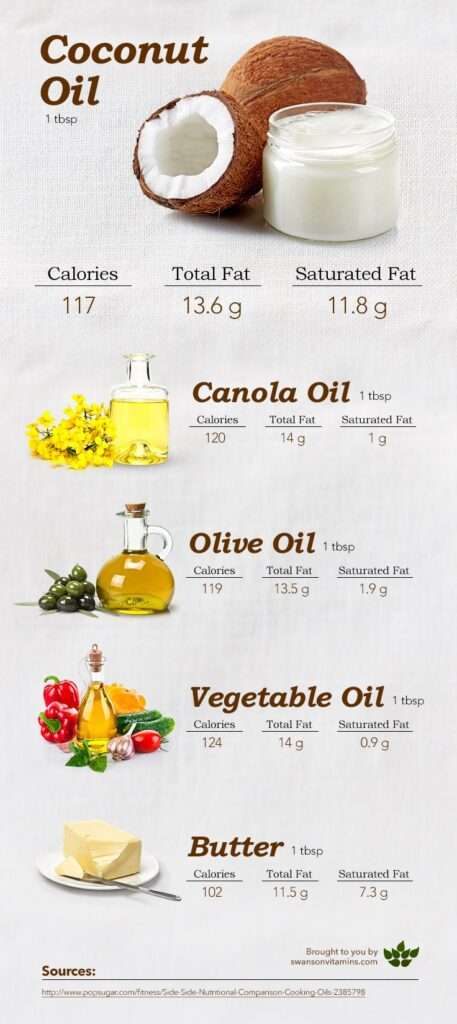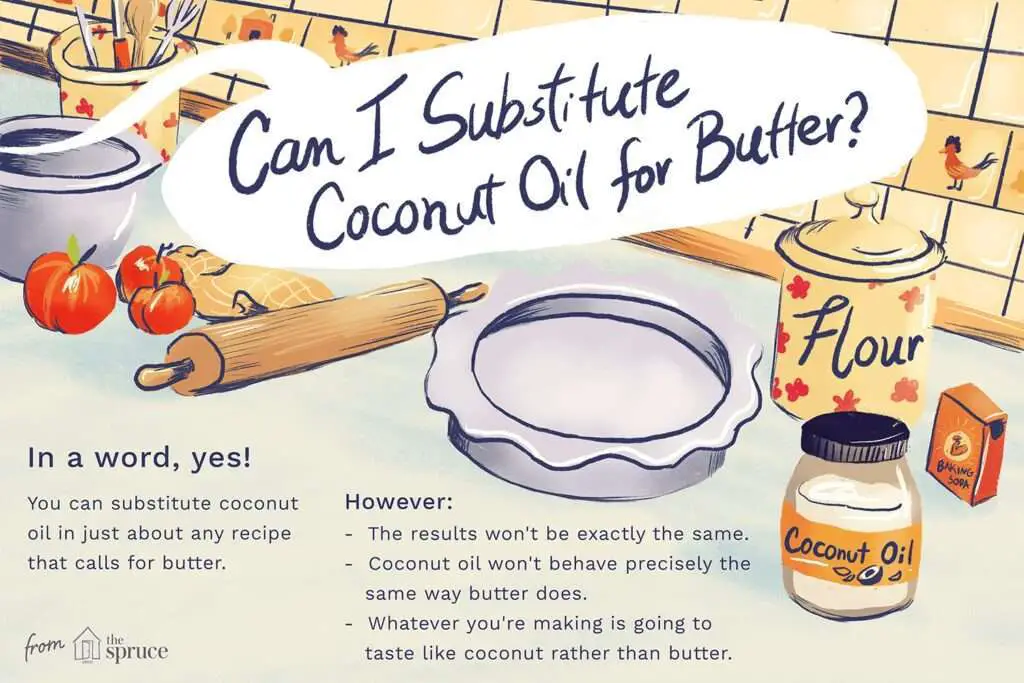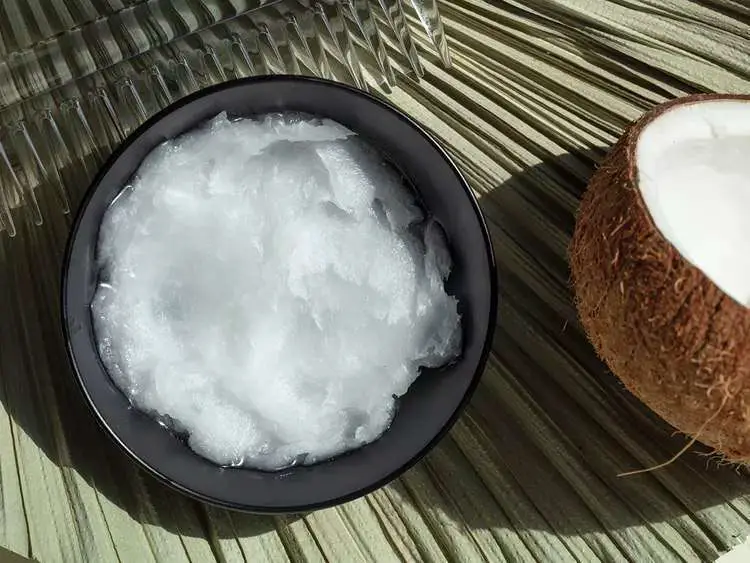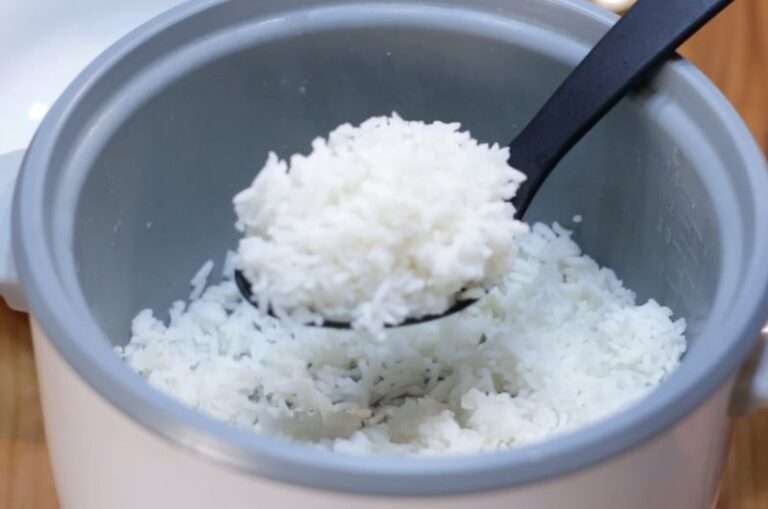What can I substitute for coconut oil? Best Substitutes
Suitable substitutes for coconut oil include butter, olive oil, and avocado oil. Choose an alternative based on your recipe’s requirements.
What can I substitute for coconut oil? Finding the right substitute for coconut oil in your cooking and baking endeavors can be crucial for those with allergies, dietary preferences, or simply out of stock in your kitchen pantry. Coconut oil, known for its high smoke point and distinct flavor, is a staple in many recipes, but not irreplaceable.
Your choice of substitution may vary depending on the dish you’re preparing, whether it’s savory or sweet. Butter, for instance, can provide a rich flavor in baked goods, while olive oil is a heart-healthy option in savory dishes. On the other hand, avocado oil, with its mild taste and similar smoke point, can be a versatile replacement in both cooking and baking. Selecting the best alternative will ensure your dish retains its intended taste and texture without any coconut oil.
Oil Alternatives: Finding Substitutes For Coconut Oil In Your Recipes
Discover versatile substitutes for coconut oil to keep your kitchen experiments delicious and diverse. Explore alternative oils and fats that deliver similar results, enhancing your culinary creations without compromising on flavor or texture.
In the culinary world, coconut oil is revered for its unique flavor and health benefits. But what happens when you find yourself without it in the middle of a recipe? Or perhaps you’re looking to reduce your saturated fat intake.
Fear not, as there are several excellent substitutes that can take the place of coconut oil without compromising on taste or texture.
Butter: The Rich And Creamy Stand-in
If you’re baking or in need of a rich, creamy texture, butter is an excellent substitute for coconut oil. It brings a comforting taste that enhances everything from cookies to sautéed vegetables:
- Flavor profile: Butter adds a warm, rich flavor that can elevate the taste of baked goods and pan-fried dishes.
- Heat tolerance: Suitable for baking and medium-heat cooking, though it can burn at higher temperatures.
Olive Oil: The Heart-healthy Option
For those seeking a heart-healthy alternative, olive oil is a versatile and delicious choice. It’s ideal for dressings, marinades, and general cooking needs:
- Monounsaturated fats: Olive oil is chock-full of these beneficial fats that can help improve cholesterol levels.
- Flavor variation: From light and fruity to robust and peppery, the diversity in olive oil flavors means there’s a type to suit any dish.
Avocado Oil: The Nutrient-packed Powerhouse
Nutrition enthusiasts often turn to avocado oil, a nutrient-dense substitute that brings more than just good fats to the table:
- Vitamins and minerals: Packed with vitamin E and potassium, it’s a nutritive addition to any meal.
- High smoke point: With a high smoke point, avocado oil is perfect for high-heat cooking, frying, and grilling.
Applesauce: The Low-fat Baking Friend
Now for those aiming to lower the fat content in baked treats, applesauce works wonders. Swap it in at a one-to-one ratio for coconut oil to keep cakes and muffins moist:
- Natural sweetness: Applesauce brings a subtle sweetness, possibly allowing for reduced sugar in the recipe.
- Moisture without fat: It adds moisture to baked goods without the additional fat, making it a great option for healthier desserts.
Remember, while you’re searching for the perfect alternative to coconut oil, consider your recipe’s flavor profile and cooking method to ensure that your substitute complements the dish seamlessly. Choose these options to adapt your culinary creations without losing an ounce of deliciousness!

Kitchen Swaps: Discovering Suitable Replacements For Coconut Oil
Explore the best alternatives to coconut oil for your culinary needs. Delve into a variety of healthful and flavorful options that cater to different cooking styles and dietary preferences.
Finding the right substitute for coconut oil in your kitchen can be a breeze with a few handy alternatives on hand. Whether you’re baking, frying, or need a non-dairy fat, here’s a rundown of some excellent stand-ins for coconut oil.
Butter Or Margarine: The Classic Choice For Baking
When your recipe calls for coconut oil, reaching for butter or margarine is a no-brainer. Their rich fat content and creamy texture make them perfect for creating flaky pastries or moist cakes. Plus, they add a touch of savory flavor that can enhance many dishes.
Vegetable Oil: An All-purpose Option
- Versatility: Vegetable oils including canola, sunflower, and safflower, are kitchen staples that can be used for almost any cooking technique.
- Health benefits: They offer a different nutritional profile, with some providing a good dose of heart-healthy monounsaturated fats.
Olive Oil: Infusing Dishes With Mediterranean Flair
A drizzle of olive oil can do more than just replace coconut oil – it can transport your taste buds to the shores of the Mediterranean. Its distinct flavor may change the character of some dishes, so it’s best reserved for savory recipes where its fruity notes will complement the overall dish.
Applesauce: The Secret Weapon For Low-fat Baking
For a lower fat content without sacrificing moisture:
- Texture maintenance: Applesauce keeps baked goods soft and chewy, much like coconut oil.
- Natural sweetness: It adds a hint of natural sweetness, potentially reducing the need for added sugars.
Avocado Oil: A Health-conscious Cook’s Best Friend
Another prime candidate for substituting coconut oil is avocado oil. It’s got the high smoke point you need for high-heat cooking, coupled with a nutritional powerhouse of monounsaturated fats and vitamin E.
Mashed Bananas: A Wholesome Twist For Baked Goods
- Natural creaminess: The creamy texture of mashed bananas works wonders in giving baked treats that desired moistness.
- Added flavor: Bananas bring their own sweet flavor profile, which can enhance the taste of various desserts and breakfast items.
Change up your routine and experiment with these coconut oil substitutions to keep your kitchen innovative and your meals exciting. Each of these alternatives offers unique qualities that can enhance your dishes in more ways than one.
Cooking Without Coconut Oil: Exploring Substitutes For Your Culinary Needs
Discover versatile alternatives to coconut oil for your recipes, enhancing flavors and textures with ease. Dive into a world of healthy and accessible options, ready to transform your cooking experience.
Embracing a versatile pantry means having the freedom to adapt recipes when favorite ingredients, like coconut oil, are absent from your shelf. Substitutes not only rescue your dish but also introduce new flavors and nutritional profiles. Let’s dive into some top-notch alternatives for coconut oil that can elegantly uphold the essence of your cuisine.
Butter: A Classic And Flavorful Replacement
Opting for butter as a substitute for coconut oil isn’t just about maintaining the richness in your dishes; it’s about enhancing them with a time-honored taste. Here’s why butter is a first-rate choice:
- Flavor: Butter adds a creamy, luxurious taste that’s hard to beat.
- Baking: Ideal for baking, it gives a tender crumb to cakes and cookies alike.
- Sautéing: Butter’s moderate smoke point makes it suitable for light sautéing.
Plant-based Oils: Healthy And Diverse Options
When seeking alternatives that fit within plant-based regimes, you’re in luck with several oils that can effectively mimic coconut oil’s versatility:
- Olive oil: With its heart-healthy monounsaturated fats and distinctive taste, it’s perfect for dressings and medium-heat cooking.
- Avocado oil: Boasting a high smoke point and mild flavor, it’s a star in frying and grilling.
- Sunflower oil: Due to its neutral taste, it’s a go-to for baking without altering desired flavors.
Choosing the right alternative to coconut oil needn’t be a daunting task. A well-stocked pantry with a variety of fats and oils can ensure that your cooking remains inspired, flavorful, and tailored to your dietary preferences or restrictions. Keep experimenting and enjoy the journey of culinary discovery.

Oil Substitution Secrets: What To Use Instead Of Coconut Oil
Discover versatile alternatives to coconut oil for your culinary creations or personal care routines. Explore our guide to find the perfect substitute, ensuring your dishes and beauty treatments miss none of the magic coconut oil provides.
Discovering a fitting substitute for coconut oil in your culinary adventures or beauty regimens can be a bit of a treasure hunt. This versatile oil has unique properties, but various alternatives can emulate its texture and flavor or provide similar health benefits.
Whether it’s for frying, baking, or skin moisturizing, finding the right replacement hinges on understanding the role coconut oil plays in your recipe or beauty routine.
Olive Oil: A Healthful Alternative
Olive oil shines as a suitable substitute for coconut oil, particularly when the nutritional aspect is paramount. Unlike coconut oil, which is high in saturated fat, olive oil is packed with heart-healthy monounsaturated fats. Here’s why you might opt for olive oil:
- Monounsaturated fats: Olive oil is rich in these beneficial fats, which can improve cholesterol levels and lower the risk of heart disease.
- Versatile use: Just like coconut oil, olive oil is incredibly versatile, suitable for both savory and sweet dishes.
- Flavor profile: While olive oil imparts a different flavor compared to coconut oil, its fruity notes can complement a myriad of recipes.
Butter: For Richness And Flavor
For those who don’t mind dairy and are seeking richness in taste and texture, butter is an excellent option:
- Cooking and baking: Butter is fantastic for recipes where coconut oil’s solid state provides structure, such as in baked goods.
- Saturated fat content: Like coconut oil, butter is high in saturated fats, making it a close match in terms of consistency and stability when heated.
Applesauce: A Unique Swap In Baking
Incorporating applesauce as a coconut oil substitute can yield surprisingly moist and tender results in baking. It’s a particularly smart choice for those aiming to reduce fat intake while still creating delicious baked treats. Here’s how it stands out:
- Fat reduction: Applesauce significantly lowers the fat content in recipes, as it replaces the fat present in coconut oil.
- Natural sweetness: Offering its own natural sweetness, applesauce can help in cutting down the added sugars in a recipe.
Avocado Oil: A Nutrient-packed Contender
If health benefits are your target, avocado oil might just hit the bullseye:
- Similar smoke point: Avocado oil has a high smoke point like coconut oil, making it ideal for high-heat cooking methods, such as frying and sautéing.
- Nutritional powerhouse: It is high in monounsaturated fats and loaded with vitamins E and K, along with nutrients that promote heart health.
Mashed Banana: A Creative And Healthy Switch
To add a punch of health and flavor to your baked goods, try mashed bananas:
- Natural sweetness and moisture: Bananas can add a delightful sweetness and the necessary moisture to recipes, much like coconut oil.
- Nutrient-rich: Bananas are an excellent source of fiber, vitamins, and minerals, adding a nutritional boost to your treats.
Embark on a journey of experimenting with these alternatives to find the perfect match for your next culinary creation or skin-care concoction. With each possessing its own unique qualities, these substitutes not only mirror the benefits of coconut oil but can also bring new dimensions to your dishes and beauty methods.
Ditching Coconut Oil: Top Healthy And Flavorful Alternatives
Discover healthy substitutes for coconut oil that pack both nutrition and flavor. Explore options like avocado oil and nut butters, perfect for cooking and baking needs.
With the growing interest in healthier cooking and baking, many of us are on the lookout for substitutes for coconut oil. Fear not, whether you’re out of coconut oil or simply wishing to try something different, there are numerous equally nutritious and appetizing alternatives at your disposal.
Let’s dig into some of the top swaps that keep your dishes delicious and your nutrition on track.
Switching To Olive Oil
Olive oil is a wonderful substitute for coconut oil, offering its own set of health benefits, including a hefty dose of antioxidants and heart-healthy monounsaturated fats. Its rich, fruity flavor makes it an ideal choice for savory dishes, salad dressings, and even some baked goods that benefit from its distinct taste.
Avocado Oil: A Heart-healthy Option
- High smoke point: Avocado oil can withstand high temperatures, making it perfect for frying and sauteing.
- Nutrient-rich: Packed with beneficial fats and vitamins, it supports overall health.
- Mild flavor: Its subtle taste won’t overpower dishes, fitting seamlessly into your recipes.
Applesauce For Baking
When it comes to baking, applesauce is a fantastic substitute for coconut oil. It not only adds moisture to your baked goods but also cuts down on calories, making it a go-to for those watching their intake. Plus, it’s a smart choice to keep your treats lighter and more health-conscious.
Rave About Butter: Flavor’s Best Friend
- Timeless taste: Butter offers a classic flavor that can enhance the richness of your dishes.
- Versatile in use: Whether baking or cooking, butter is a simple 1:1 substitute for coconut oil.
- Texture enhancer: It provides a tender and flaky texture, especially in pastries and pie crusts.
Nutty, invigorating, and all-around versatile, these coconut oil substitutes are not only healthier but can also elevate the flavors of your favorite recipes. Whether you opt for olive oil’s fruity zest or butter’s traditional richness, rest assured your culinary creations will remain delightful and nutritious.
Just remember, the best substitute often depends on the desired taste and cooking method, so feel free to experiment and find the perfect match for each dish.

Pantry Essentials: Substituting Coconut Oil With Ease
Discover the perfect alternatives for coconut oil in your pantry staples, ensuring seamless recipe adaptations. Embrace versatile swaps like butter, olive oil, or avocado oil, and keep your culinary creations on track with these easy-to-find substitutes.
Coconut oil has become a staple in many kitchens, revered for its unique flavor and health benefits. But what happens when you’re mid-recipe and realize your jar is empty, or you’re cooking for someone with an allergy? Fret not, because there are several readily available alternatives that can step in for coconut oil, each bringing its own set of qualities to your dish.
Butter: The Classic Choice For Flavor
A widely loved and accessible alternative to coconut oil is butter. Its rich flavor profile makes it an ideal substitute in baking and cooking. Here’s why butter is a dependable option:
- Flavor: Butter imparts a creamy, rich taste that can enhance the flavor of baked goods and sautés.
- Texture: In baking, butter can contribute to a tender crumb and a moist texture which is similar to the results you’d get with coconut oil.
Healthier Oils: Swapping For Nutritional Value
If you’re in pursuit of a substitute that aligns with a health-conscious diet, there are several oils that you can pick from. Each oil has its distinct nutritional benefits and best use cases:
- Olive oil: This heart-friendly oil is packed with monounsaturated fats and is perfect for dressings and light sautéing.
- Avocado oil: With a high smoke point and beneficial monounsaturated fats, avocado oil is ideal for cooking at higher temperatures.
Applesauce: The Secret Ingredient For Low-fat Baking
Surprisingly, unsweetened applesauce can serve as a lower-fat replacement for coconut oil in baking. While it may seem unconventional, it’s a trick often used to reduce fat without sacrificing moisture:
- Calorie Cutter: Applesauce significantly slashes the calorie count of your baked goods.
- Moisture Magic: It maintains the moist texture you desire in cakes and muffins, making it an excellent stand-in for oils.
Using Margarine: When You Need A Quick Fix
Margarine can step in for coconut oil, especially when you’re looking for that buttery flavor without dairy. It’s suitable for most baking and cooking scenarios:
- Vegan-Friendly: Many margarine brands are plant-based, which is great for those following a vegan diet.
- Accessible: Margarine is readily available in most grocery stores, making it a convenient option.
Shortening: The Texture Enhancer
A go-to for many bakers, shortening is a great substitute to achieve the desired texture in cookies and pie crusts. Here’s how shortening measures up:
- Structure: It provides excellent structural integrity to baked goods, much like coconut oil.
- Neutral Flavor: Shortening won’t overpower your dishes with a competing taste, ensuring the original flavors stand out.
Making substitutions in the kitchen shouldn’t have you breaking a sweat. These alternatives not only fill in for coconut oil but also respect the balance of flavors and textures in your recipes. Feel poised to experiment with these swaps and discover which one best suit the unique requirements of your next culinary creation.
Frequently Asked Questions Of What Can I Substitute For Coconut Oil
What Can I Substitute For Coconut Oil In A Recipe?
For coconut oil substitution in recipes, use equal amounts of butter, olive oil, or vegetable oil. Each alternative maintains moisture and binds ingredients effectively. Choose based on desired flavor and intended use.
Can I Replace Coconut Oil With Butter?
Yes, you can replace coconut oil with butter in recipes, using a 1:1 ratio for most baking and cooking needs.
Can You Substitute Vegetable Oil For Coconut Oil In Muffins?
Yes, you can use vegetable oil as a substitute for coconut oil in muffins, maintaining a 1:1 ratio for best results.
What Can I Use Instead of Coconut Oil in Granola Recipes?
A good substitute for coconut oil in granola is olive oil or melted butter, both offering a rich flavor and similar texture.
Conclusion
Exploring alternatives to coconut oil can be an adventure in culinary creativity. From butter to avocado oil, each substitute brings its own unique flavor and nutritional profile to your cooking. Remember, the perfect swap depends on your recipe and dietary needs.
Embrace the variety and enjoy your kitchen experiments!










2 Comments